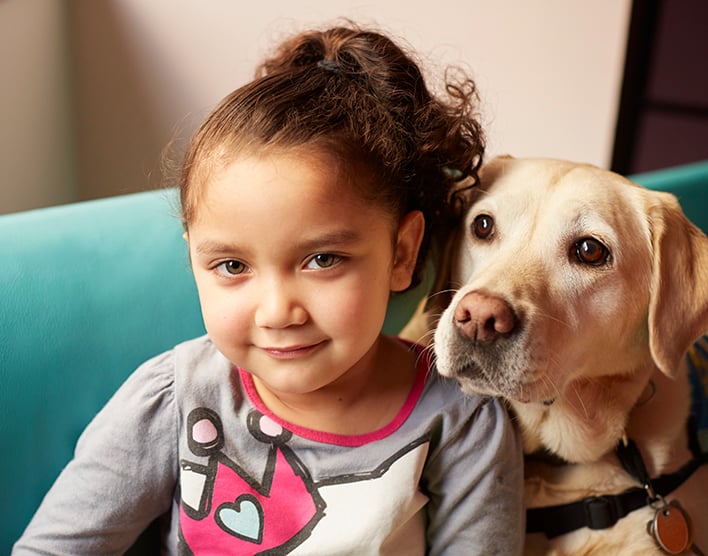Tender wagging care
Our therapy dogs spread joy and smiles at the bedside and throughout the hospital.
Visit Child Life services

Syncope, also known as fainting, or a sudden and brief loss of consciousness, occurs when the brain does not get enough blood flow and oxygen.
There are many causes of syncope. A common type of syncope — vasovagal syncope or neurocardiogenic syncope — is caused by a malfunction of the nerves that control the action of the heart and blood vessels, called the autonomic nervous system. This type of syncope may be triggered by fear, severe pain, emotional distress or standing for a long time. Dehydration and low salt intake may also contribute to the condition.
Syncope may also be caused by very fast heart rhythms or arrhythmias called tachycardias, as in supraventricular tachycardia (SVT) or ventricular tachycardia. In some cases, syncope is caused by very slow heart rhythms, called bradycardias, as in sinus node dysfunction or heart block.
The hallmark symptom of syncope is fainting, or near fainting. The condition may also cause the following symptoms:
Syncope or near syncope may occur spontaneously with unpredictable timing. Therefore, in many cases, specialized tests are needed to make an accurate diagnosis. Your child's doctor may order one or more of the following diagnostic tests to determine the source of your child's symptoms.
Because there are various reasons for syncope, the treatment for your child's syncope will depend on the cause. Syncope may be caused by very fast heart rhythms — tachycardias — such as in supraventricular tachycardia (SVT) or ventricular tachycardia. In other cases, syncope may be caused by very slow heart rhythms — bradycardias — such as in sinus node dysfunction or heart block.
If your child's syncope is due to a blood pressure problem, medications, extra fluid intake and salt may be recommended.
UCSF Benioff Children's Hospitals medical specialists have reviewed this information. It is for educational purposes only and is not intended to replace the advice of your child's doctor or other health care provider. We encourage you to discuss any questions or concerns you may have with your child's provider.

Ranked among the nation's best in 11 specialties

Best in Northern California for cardiology & heart surgery
Tender wagging care
